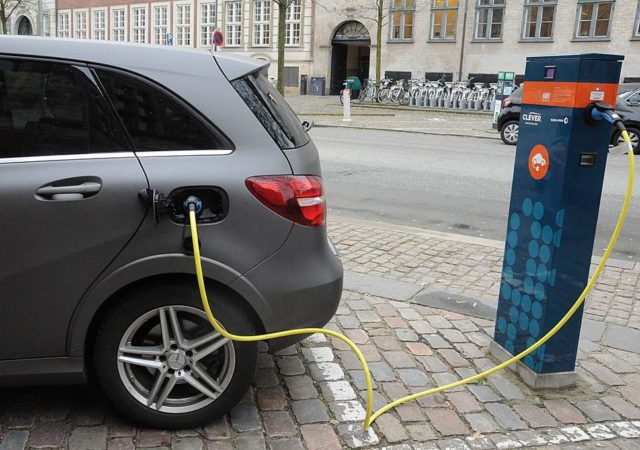
There have been scientific speculations and research into the possibilities of the widespread use of vehicles not utilising fossil fuels. This line of thought has been widely discussed amongst prominent automobile engineers and manufacturers as well as world leaders who allocate huge budgets for purchase and importation of petroleum products.
Many countries have began to give this agenda serious thought as they make future plans to bring this dream to reality. Foremost amongst such countries is the UK.
The UK Prime Minister Boris Johnson has recently confirmed that by the year 2030, new cars and vans powered by petrol and diesel will not be sold in the UK.
According to News source the BBC, the prime minister disclosed that this move is part of “a green industrial revolution”, to tackle climate change and to create job opportunities in the country.
The major plan is for the UK to hasten the process of transition from cars using gas and petroleum to electric vehicles, and also to invest in grants which would help to buy cars and charge-point infrastructure.
There is also the intention to produce alternative power in form of offshore wind to power every home. This would create the record of the first town heated entirely by hydrogen by the end of the decade. There would also be provision for large nuclear plant and developing the next generation of small and advanced nuclear reactors.
The aim of this plan is to put the UK on track to meet its goal of net zero emissions by 2050 and also to create 250,000 jobs.
With this plan, buildings will become greener, warmer and more energy-efficient. 600,000 heat pumps (low-energy electrical devices for warming homes) would be installed every year by 2028 as well. Cycling and walking would be made more attractive ways to travel, and zero-emission public transport would be invested in for the future.
According to Borris Johnson, it’s a 10 point plan. In his words; “My 10-point plan will create, support and protect hundreds of thousands of green jobs, whilst making strides towards net-zero emissions by 2050,”.
“Our green industrial revolution will be powered by the wind turbines of Scotland and the North East, propelled by the electric vehicles made in the Midlands and advanced by the latest technologies developed in Wales, so we can look ahead to a more prosperous, greener future.
The UK will host the conference of party (COP26) international climate summit in Glasgow in 2021. The conference was initially scheduled to take place in 2020 but was postponed because of the COVID-19 pandemic.
Other countries who are equally thinking in line with the UK include Israel, Denmark, Sweden, Norway Ireland, and Singapore. They have made their interest known and plan to phase out internal combustion engine (ICE) vehicles — with the earliest abolishment date being 2025.
This latest plans by the UK and other countries will not bode well for the Nigerian economy, which relies heavily on the revenue generated from crude oil exports, especially as most European countries are those who patronise and import the crude oil produced by Nigerians.
There is already an adverse effects in world economy as the prices of oil has dropped due to the outbreak of COVID-19 pandemic. This also impacted negatively on the Nigerian economy as a country which deals on exportation of oil.
As of November 2, the price of Brent crude dropped by 3.43 percent to $36.64 per barrel after some European countries imposed another round of lockdown to slow the spread of COVID-19.
There are speculations by economic experts and analyst that Nigeria is on a verge of entering into its second phase of recession in five years owing to low prices in oil products.
Gift Joseph Okpakorese







